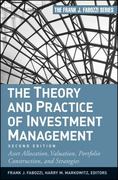Question
This is an individual project and each student must manage a separate portfolio and submit a separate project report, but feel free to form groups
This is an individual project and each student must manage a separate portfolio and submit a separate project report, but feel free to form groups to work together.
Your employer, Stock Fund Managers, has given you a $100 million portfolio to manage. Your mandate is to invest the portfolio in stocks and cash (i.e., cash equivalents).
1. Your performance is to be evaluated against a benchmark that consists of a 60% investment in the S&P500 index and 40% in cash. Calculate weekly returns on the benchmark portfolio with these 60-40 weightings.
2. Your portfolio must contain 5 stocks, and cash, if you wish to take a position in cash. The stocks must be bought and sold in round lots of 100 shares. No mutual funds or ETFs.
3. You can choose any level of investment in cash, and it can be a long, or a short position (borrowing). Assume that the rate of return on cash is 0.02% per week (not 2%). Thus, if you invest in cash you will earn 0.02% per week on the cash investment; if you borrow money (short position in cash) you will pay 0.02% in interest per week on the amount borrowed.
4. In the second week of class submit your initial portfolio holdings as of the close on Friday in Week 1, along with a one-page description of the strategy you wish to follow. For selecting a strategy, you can use ideas from Malkiels book, Chapter 11 of Reilly, Brown and Leeds, or any ideas that you would like to try out. In the initial portfolio holdings report include at least the stock symbol, stock name, number of shares, price per share, dollar investment in each stock and the percent weight of each stock in your portfolio using the preceding Fridays closing prices, and also include the dollar investment in cash and its percent weight. Use an Excel spreadsheet for this initial portfolio holdings report.
5. Rebalance the portfolio once a week, using Fridays closing prices. Assume there are no transactions costs.
6. Keep track of stocks that go ex-dividend, add the dividend received to the cash in your portfolio, and then use the cash to buy stocks if you wish. All trading is done at Fridays close.
7. Each week submit your portfolio holdings, along with a performance summary for the week for your portfolio, the S&P500 index and the benchmark. The performance summary should include returns on the stock component of your portfolio, the cash component of your portfolio, your overall portfolio, the S&P500 index and the benchmark. You do not need to track individual stock performance. Develop an Excel spreadsheet for these calculations.
8. Liquidate your portfolio at the close of trading on the Friday in Week 8. That will give you 7 weeks of returns data for your portfolio and the benchmark.
9. Evaluate your portfolios performance using the techniques described in Chapter 18 of Reilly, Brown and Leeds. Include a performance attribution analysis for the first week only.
Step by Step Solution
There are 3 Steps involved in it
Step: 1

Get Instant Access to Expert-Tailored Solutions
See step-by-step solutions with expert insights and AI powered tools for academic success
Step: 2

Step: 3

Ace Your Homework with AI
Get the answers you need in no time with our AI-driven, step-by-step assistance
Get Started


